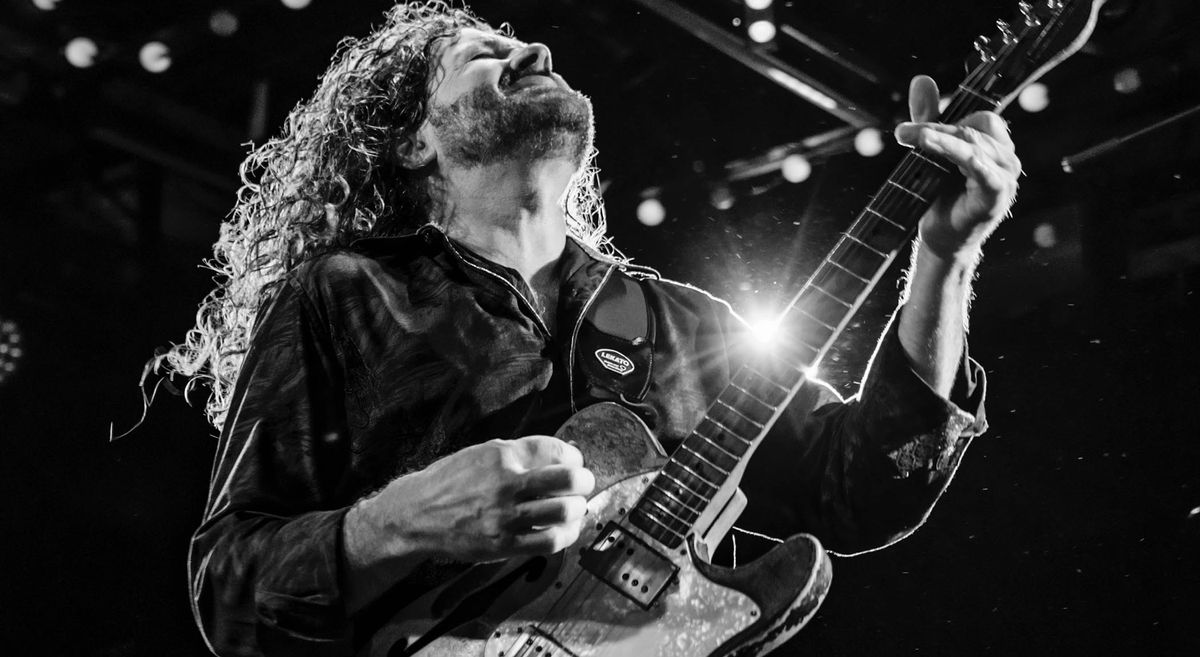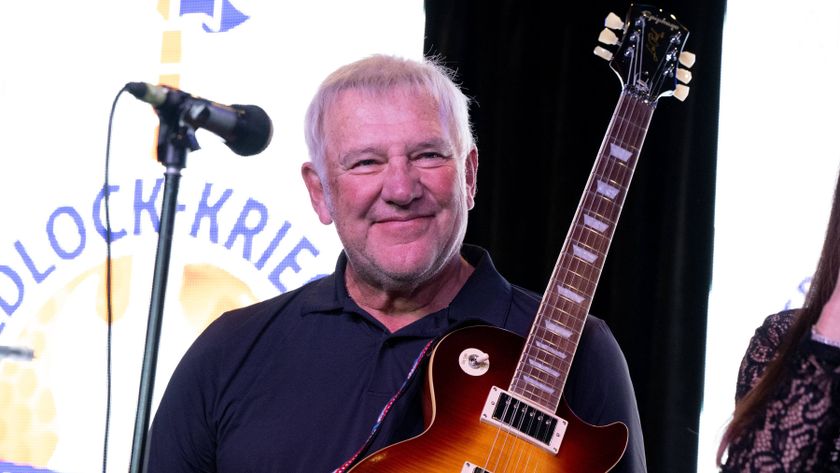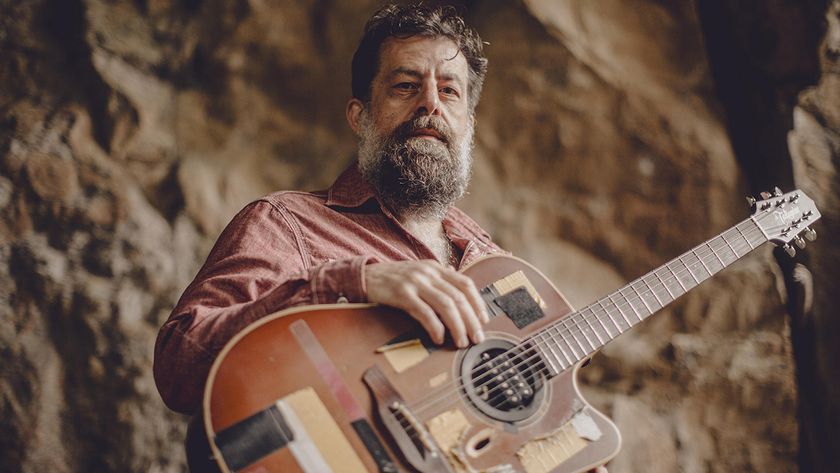“Music has to be heartfelt. Robert Johnson didn’t go back and redo anything. John Lee Hooker, he walked in there and did it once”: Tab Benoit on returning from the swamp with the blues comeback of the year, and why he’s a one-take wonder
After more than a decade spent clocking up road miles, the Louisiana blues ace is back with a new 10-song collection, I Hear Thunder

Between the time bluesman Tab Benoit released his first solo album, Nice and Warm, in 1992, until Medicine dropped in 2011, he kept his foot on the accelerator, putting out new collections of original music nearly every year.
But after nabbing a trio of Blues Music Awards for Medicine, he didn’t darken a studio door for years, instead concentrating on creating music live on stage. Now, after 13 years of studio silence, Benoit is revealing what happened – and it’s a classic tale of a good-natured artist signing a bad business deal.
“I was stuck in a record deal for my entire career that I never could get out of, and when I finally got out of it, I just didn’t wanna give away any more music,” he says.
Albums, to him, are simply a license to create. “I never looked at it like, ‘This is an album that’s gonna go out to the world and they’re gonna make a bunch of money on it.’” So, instead of hiring a lawyer to read through the contract he signed 30-something years ago, in his naivete, he considered the long-term deal as job security and a way to make music the center of his life.
At the conclusion of the deal, with no more obligations hanging over him, Benoit pushed ahead as a live performer. “I’ve always considered myself a live artist more than a recording artist, anyway, so I just kept playing shows,” he says. “That communication between me and the audience is open and free, so I stuck to that. It’s one thing that nobody could mess with.”
Now recording for his own label, Whiskey Bayou Records, Benoit is back in business with I Hear Thunder, a new 10-song collection inspired by the swamps and written among the cypress trees near his fishing camp south of Houma, Louisiana.
“When I write out there, I’m just playing with the environment, and it plays back and gives me things to play with that I would never come up with in town, or in a hotel room, or in the bus or anything like that,” he says.
Get The Pick Newsletter
All the latest guitar news, interviews, lessons, reviews, deals and more, direct to your inbox!
Benoit surrounded himself with a pair of New Orleans ringers he’s known for decades – legendary funk bassist George Porter Jr. of the Meters and journeyman singer/songwriter and guitarist Anders Osborne – and set out for the swamp, where they fished, laughed and observed the natural life teeming around them.
All that bayou magic seeped into the songwriting like a leaky pirogue. Watching the Gators Roll In is a literal observation of their time on the water, written to catalog the moment when wildlife appeared to creep from the shadows to find out what was making the ruckus.
“We get out there and start playing,” he says, “and sure enough, there’s an alligator coming up to the boat, and he’s just sitting there in the current with us, like, I wanna see where this is going. I’d give him a writer’s credit if I knew where to send the royalties,” he says with a laugh.
Album opener I Hear Thunder explodes, as its title suggests, with a booming Jimmy Page-esque pentatonic riff. On its heels, The Ghost of Gatemouth Brown is a strutting blues workout set to a Bo Diddley beat, with lyrics nodding to the legacy of the late Louisiana bluesman. Throughout the set, Benoit’s play-for-the-moment philosophy pushes the performances into the red.
“I never put out music that was written to where I had to play it exactly note-for-note every time I play it,” he says. “A song is basically like a race track, and I get to drive it differently every night. It’s always being created and recreated all the time.”
When it came time to capture the performances that became I Hear Thunder on tape, Benoit brought the same spontaneity of his bayou jams to his studio return. Despite the availability of the usual digital gadgetry, he recorded without overdubs, punch-ins or gratuitous effects, choosing instead to use his live setup – his road-dog ’72 Fender Telecaster Thinline and signature Category Five amp – and let the performances stand on their own.
“Blues are such a perfect fit for me, because the structure of the songs is simple so you can put more emotion into the performance of the song,” he says. “Each performance is its own thing, and then once it’s played, that performance is done, and it will never be like that again. And I record the same way.
“Music has to be heartfelt,” he continues. “I mean, Robert Johnson didn’t go back and redo anything. John Lee Hooker, he walked in there and did it once. Everybody that I love just went in there and did it once, you know, and that was it. They captured the moment, and that’s what I try to do.”
Just the mere occasion of having a “do-over” mindset can disrupt the creative moment, he says. “If we had it in mind that we could go back and fix anything, then everybody half-asses their way through every take, and you never really get one good, powerful [take]. When that red button is on, that is the audience.”
And now that I Hear Thunder is in the world, Benoit is back on the road.
“My music is set up to be open to change and flex and bend with my feelings and the time and everything we’re doing – the audience and the venue and the moment,” he says. “Every night, I’m creating.”
- I Hear Thunder is out now via Whiskey Bayou.
Jim Beaugez has written about music for Rolling Stone, Smithsonian, Guitar World, Guitar Player and many other publications. He created My Life in Five Riffs, a multimedia documentary series for Guitar Player that traces contemporary artists back to their sources of inspiration, and previously spent a decade in the musical instruments industry.

“Zal is really nobody’s guitar hero. Fans say he’s the most underrated player ever; many guitarists rate him amongst the best... but I’ve never heard anyone call him their ‘guitar hero’”: Billy Rankin on lessons learned from the legendary Zal Cleminson

“It’s a whole new generation in sound. There’s nothing lacking”: Alex Lifeson reveals the gear that has finally converted him to digital modeling














